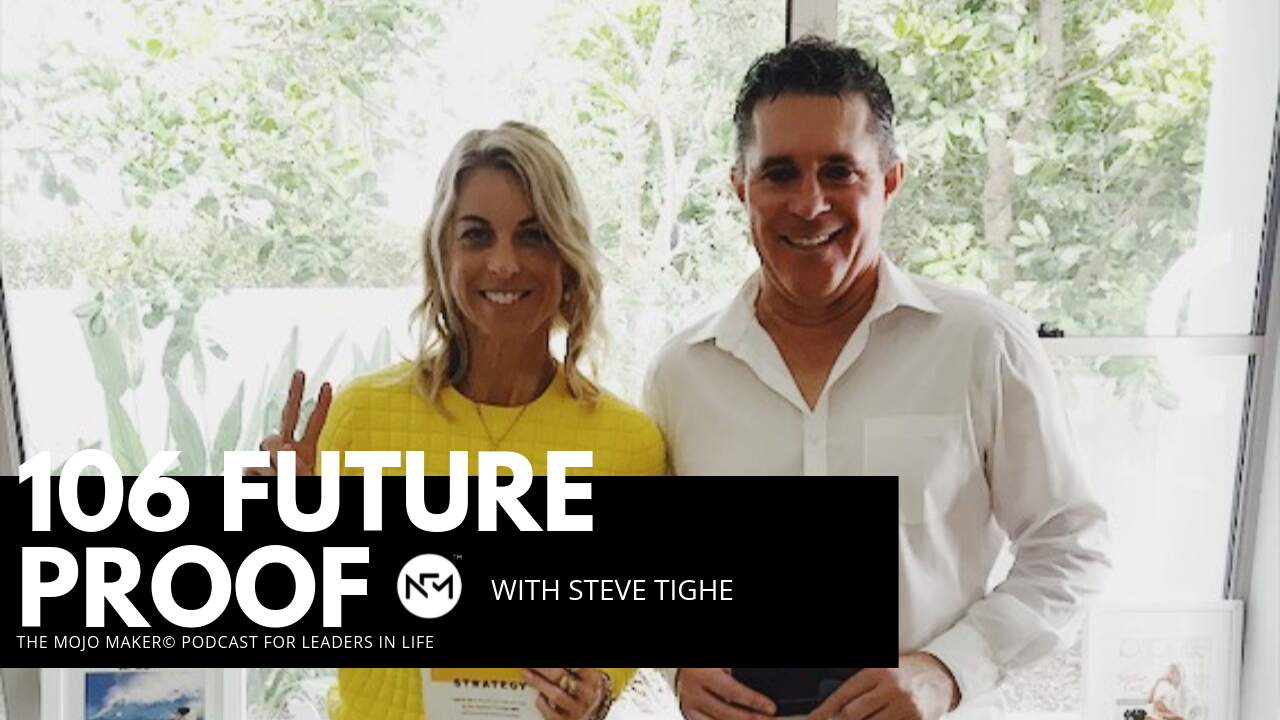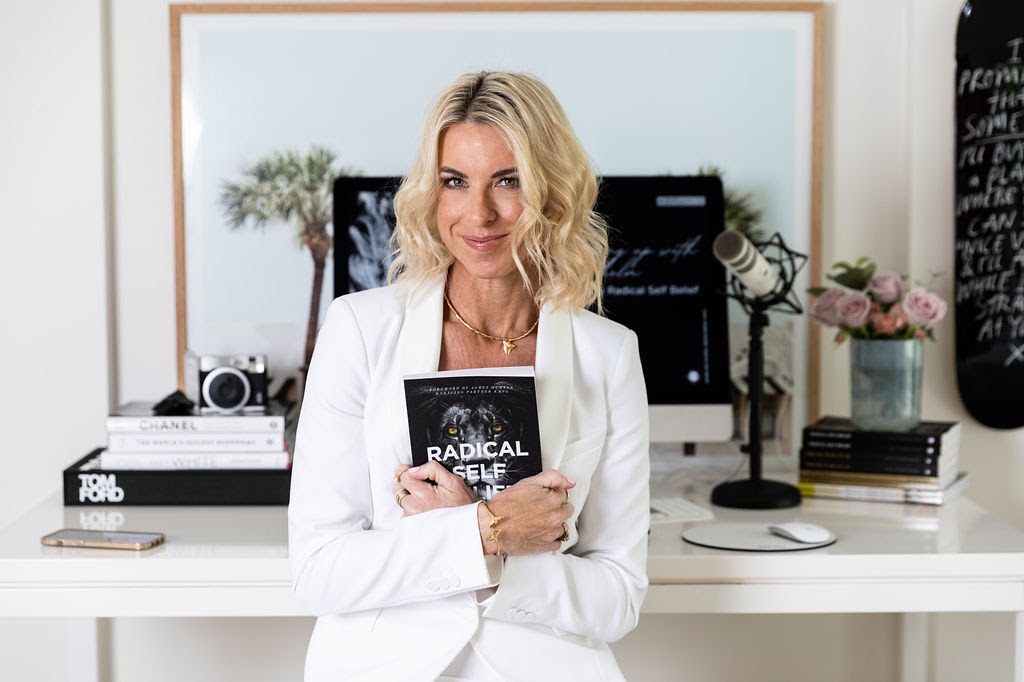TMM 106 Steve Tighe Future Proof
Jul 17, 2019
Are you Future Proof? Welcome to episode 106 with Author, Strategy guru and Futurist Steve Tighe.
Self proclaimed lover of all things data and research, Steve's mission for curiosity has put him front and centre as a pivotal "future" guide for the worlds best organisations.
In this episode we discuss why too much data is not really a good thing and how trends are actually outdated by the time they are named.
That the key to success is to replace looking back (or sideways) – with curiosity forecasting "the unknown".
The What If's.
Future Proofing...How looking ahead is the essential ingredient for sustainable growth and longevity.
Yes, review the past - but the true genius for companies and leaders is the fact looking ahead is one of the best assets for sustainable success.
In a generation of information overload, Steve focuses on why companies should be looking forward and not reliant on "past trends" and data to make visionary strategic decisions. Plus why embracing the unknown starts with how we think at home and work.
A business strategist, scenario planner and public speaker - Steve designs long-term strategies for organisations. These long-term 'foresight' strategies give companies enough time to transform what they do, how they do and even who they are.
Transformation is essential in a changing and volatile business environment.
So why should we be more curious about change and less fearful about the future?
Future Proof is Being Curious for Change
Steve has had long relationship with information. He started at Foster’s in 1995, in the heyday of predictive analytics when organisations accumulated more and more data in the quest for a competitive edge.
At Foster’s Steve supported the sales vice president and the marketing vice president, and in the first eight years, did more market analysis than anyone else in the organisation’s 150 year history.
Looking at the data available, how it was used, and not used, he saw the weaknesses in information and how companies use it.
The weakness of traditional sources of data is that it is syndicated. So, any organisation and its competitors receive identical data, which defeats the purpose of using data for a competitive edge. Even so, companies continue to accumulate more data, which is never used.
Steve started looking at information differently and asked, ‘What can I find that will help us as an organisation against our competitors?
This led him to the fundamental question, which has dictated the direction in his life since, "How do you get ahead of trends?"
The turning point
This led Steve to enrol in a master’s programme in foresight at the University of Swinburne University of Technology. He was appointed in the role of foresight manager.
He admits that he had no idea what it would entail and feeling overwhelmed. But that was part of the charm...
He asked the question, “What would Australia look like in 10 years, what are the fundamental wants, needs, and attitudes of people in that society, and what does it mean for us?”
Trends? Why Looking Back Can Be Deceptive
- A trend represents a-fundamental shift in behaviour.
- A forecast is an extrapolation of a trend, and organisations innovate to the latest trend.
But trends are deceptive. Because they are an extrapolation of the past, they don't forewarn you of discontinuities.
Organisations need to ask how to get ahead of trends, and how to develop the capacity to anticipate and prepare for important discontinuities before they occur.
- Knowing where the shift is going to be is the real power in business.
It was then that he realised the critical key to demystifying the future, is letting go of dependence on data.
What holds organisations back is not knowing how to think about change effectively, how to foresee it and how to prepare for it.
That is the space that Steve works into, to help companies foresee how their business environment could shift, what that shift means and what they need to do to prosper.
Future Proofing Action
I asked Steve for three steps companies need to take to prepare for change.
- Explicitly list the fundamental drivers of current and historical business performance, and don’t assume that those fundamentals will persist.
- Ask which of those drivers are changing or could change. The answer will determine the different operating contexts for the next 10 years.
- Look at the context, because all changes must fit the context. Within a different context, what we did is unlikely to be as successful. But it all stems from your identity, your ‘why’, which is critical. Identity must be broad enough to allow an organisation to stay true to its heritage, but relevant to the future.
Future Proof is democratic
The best and brightest leaders don’t have a monopoly on brilliance. We need to take a collaborative approach to strategy development by involving as many people as is practical.
The future is democratic.
Nobody is an expert on the future, and this makes every person’s ideas, equally valid. Create a forum where these ideas can be expressed. Ensure you allow a safe space for open feedback from all levels inside your organisation and all personalities.
Often the quietest people have the greatest insights.
Final word ....
Future Proof Key takeaways
Steve highlights the importance of intellectual curiosity. For him, it is the key to success for organisations and individuals. Here's some key takeaways:
- The business world is constantly changing.
- Trends and historical data don’t provide insight into future discontinuities.
- Understanding how change occurs is key to strategic planning.
- The future is democratic, and everybody has valid ideas on what the future could be.
- Stay intellectually curious!
I hope this episode encourages you to evolve and move forward rather than being stuck in the past. To not build strategies (personal or professional) that are based on fear of past mistakes and trends or what others may be doing.
To dig deep and figure out your core values as no matter what the landscape those foundations will carry you forward to the ultimate success as individuals and as organisations - healthy, wealthy and wise.
We'd love to help if you are looking to future proof personally or professionally please reach out and Steve and I will be in touch.
Life has no remote - you must get up and change it yourself.
Nikki
"Re-Thinking Strategy" by Steve Tighe
Steve Tighe, a visionary and author of the book, Rethinking Strategy: How to Anticipate the Future, Slow Down Change, and Improve Decision Making.







